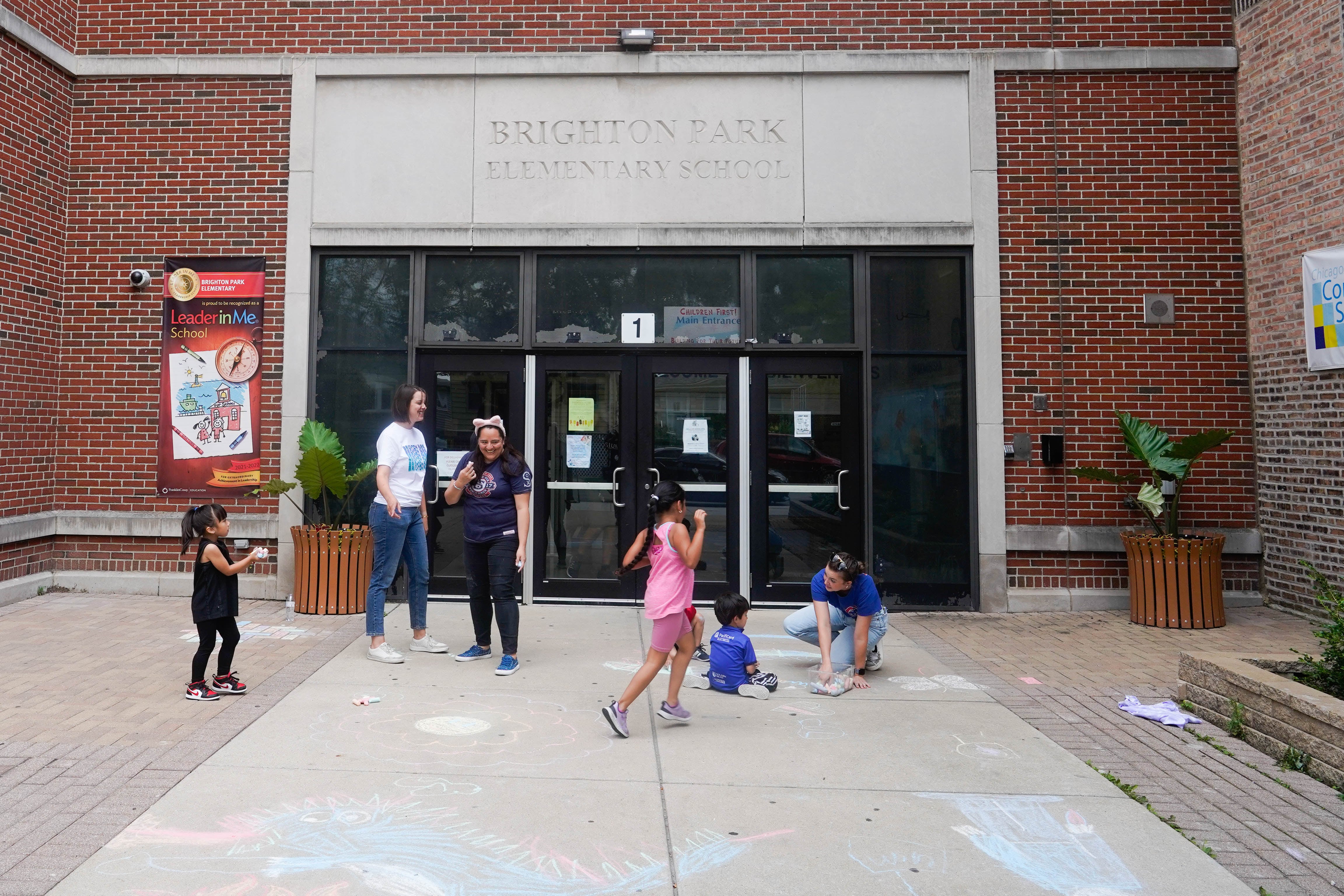Chicago Public Schools will once again get less state education money than officials anticipated, according to new data released by the state on Tuesday.
Although Chicago will still see an increase in state education funding, a drop in the percentage of students considered low-income and a bump in property wealth in the city means the district is not getting the largest share of the new money.
In May, state lawmakers passed a $50.6 billion state budget that allocated $10.3 billion to education. That included a $350 million increase to be distributed to K-12 school districts through an evidence-based formula.
Chicago was expecting to get $27 million of that increase. But new calculations posted on the Illinois State Board of Education website show that the state is allocating $23.3 million of the increase to CPS.
The largest share of the state’s new K-12 funding – $35 million – will go to Elgin U-46, Illinois’ second largest district. Plainfield School District 202, the state’s fifth largest district, will receive $13.1 million of the increase.
In all, Chicago will get $1.77 billion in K-12 funding, up from $1.75 billion last year. The amount doesn’t include millions it gets for things such as pre-K and transportation. The new state data indicates CPS is now getting more than $17,000 per student from the state and is considered 80% of the way to “adequately funded.”
A district spokesperson did not say how the change might impact the already-approved $9.4 billion budget. In a statement, they said the district is “eager to work with the General Assembly toward increased and targeted State funding that more equitably supports the students most in need in Chicago and across Illinois.”
Last year, Chicago Public Schools planned on getting $50 million in new state money, but instead received a little more than $27 million after losing 10,000 students and seeing an increase in property wealth.
Funding for public education has been steadily increasing in Illinois since 2017, when state lawmakers overhauled the formula used to distribute tax dollars to school districts. The goal was to add more money over time to bring all districts to a level of “adequacy” and shed Illinois’ reputation as a state that ranked near the bottom when it came to support for public education.
“When you consider how much progress Illinois has made in the last five years, it’s nothing short of remarkable,” said Robin Steans, president of Advance Illinois, a nonprofit advocacy and policy organization based in Chicago that focuses on public school education. “But that does not mean our work is done.”
Steans said the latest calculations make her hopeful that the state can fully fund schools in the next five years, but there is still a need to increase state funding for schools by at least $550 million a year to reach that goal.
Lawmakers have increased education funding every year since 2018, with the exception of 2020 amid the COVID-19 pandemic.
State education officials calculate how much each school district gets based on a number of factors, including the needs of the students enrolled and a local district’s ability to fund schools using local resources such as property taxes. For example, districts that serve more students from low-income families or English language learners get more state money.
Chicago Public Schools is facing a looming deficit when federal COVID recovery money runs out next fall. District officials and school board members have said they hope for more state funding to fill the gap.
Becky Vevea is the bureau chief for Chalkbeat Chicago. Contact Becky at bvevea@chalkbeat.org.
Samantha Smylie is the state education reporter for Chalkbeat Chicago, covering school districts across the state, legislation, special education, and the state board of education. Contact Samantha at ssmylie@chalkbeat.org.







